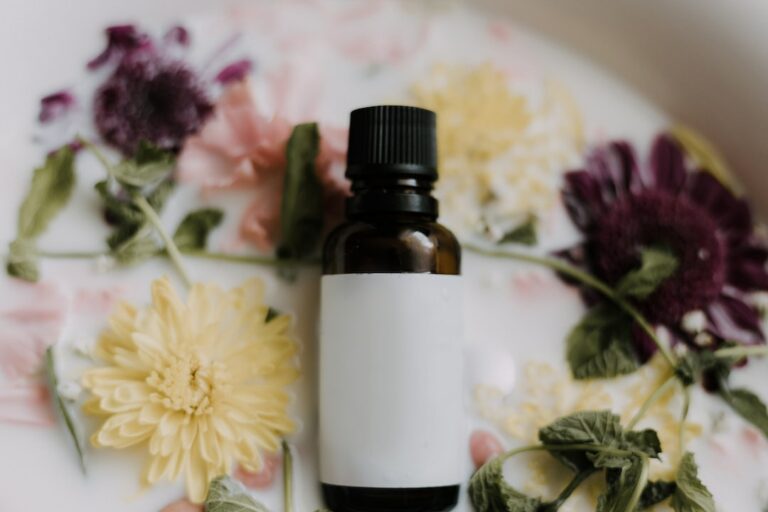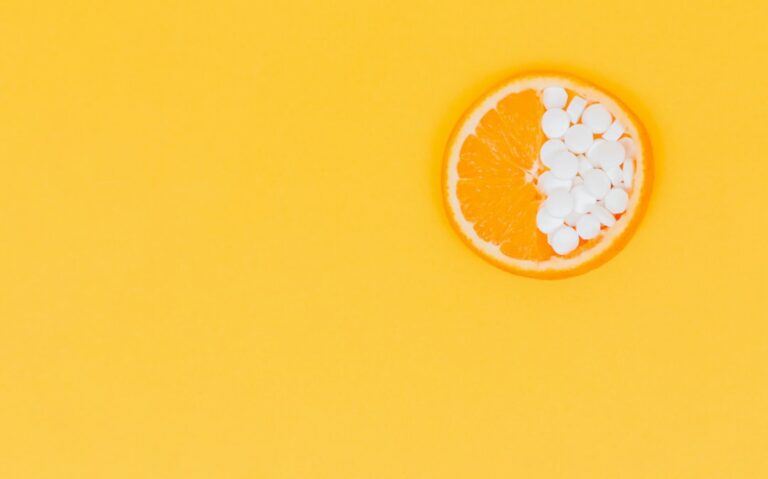Introduction
What are herbs?
Herbs are plants that are used for their medicinal properties. They have been used for centuries in various cultures as a natural remedy for different health conditions. Holistic healing methods often incorporate the use of herbs to promote overall well-being and address specific ailments. These plants contain bioactive compounds that can have therapeutic effects on the body, such as reducing inflammation, boosting the immune system, and fighting infections. When used properly, herbs can be a valuable addition to a holistic approach to health and wellness.
What is an infection?
An infection is a condition caused by the invasion of harmful microorganisms into the body. These microorganisms, such as bacteria, viruses, fungi, or parasites, can enter the body through various means, such as cuts, wounds, or inhalation. Infections can range from mild to severe and can affect different parts of the body, including the skin, respiratory system, urinary tract, or bloodstream. Herbal remedies have been used for centuries as a natural and alternative approach to treating infections. They are derived from plants and possess antimicrobial properties that can help fight against pathogens. Herbal remedies can be used to alleviate symptoms, boost the immune system, and promote overall health and well-being. When considering herbal remedies for infections, it is important to consult with a healthcare professional to ensure safety and effectiveness.
The role of herbs in treating infections
Herbs have been used for centuries to treat various ailments, including infections. They contain natural compounds that have powerful antimicrobial properties, making them effective in fighting against harmful bacteria, viruses, and fungi. The role of herbs in treating infections is significant, as they can help boost the immune system and promote healing. Some of the most commonly used herbs for treating infections include garlic, oregano, echinacea, and turmeric. These herbs have been found to have antibacterial, antiviral, and antifungal properties, making them valuable additions to any infection-fighting regimen. Incorporating herbs into your treatment plan can provide a natural and holistic approach to combating infections and supporting overall health.
Common Herbs for Treating Infections

Garlic
Garlic is a powerful herb that has been used for centuries to treat various infections. It contains a compound called allicin, which has antimicrobial properties and can help fight against bacteria, viruses, and fungi. Garlic is particularly effective in treating respiratory infections, such as the common cold and flu. It can also be used topically to treat skin infections and wounds. Additionally, garlic has immune-boosting properties, which can help strengthen the body’s natural defense mechanisms. Incorporating garlic into your diet or using garlic supplements can be a natural and effective way to prevent and treat infections.
Echinacea
Echinacea is a popular herb that has been used for centuries to support the immune system and treat various infections. This herb is native to North America and is known for its vibrant purple flowers. Echinacea contains compounds called phenols, which have been found to have anti-inflammatory and antioxidant properties. These properties help to boost the immune system and fight off infections. Research has shown that echinacea may be effective in reducing the severity and duration of the common cold and flu. It is also believed to have antibacterial and antiviral properties, making it a potential natural remedy for infections. Echinacea can be taken in various forms, including as a tea, capsule, or tincture. It is important to note that while echinacea may have immune-boosting properties, it should not be used as a substitute for medical treatment. If you suspect you have an infection, it is always best to consult with a healthcare professional for proper diagnosis and treatment.
Ginger
Ginger is a versatile herb that has been used for centuries in traditional medicine. It is known for its powerful anti-inflammatory and antibacterial properties, making it an effective natural remedy for various infections. Ginger contains a compound called gingerol, which has been found to inhibit the growth of bacteria and reduce inflammation in the body. This herb can be used to treat respiratory infections, such as the common cold and flu, as well as digestive infections like food poisoning. Additionally, ginger can help boost the immune system and promote overall health. Incorporating ginger into your diet or consuming ginger tea can provide numerous health benefits. It is important to note that while ginger can be a useful natural remedy, it is not a substitute for medical treatment. If you have a severe infection, it is always best to consult a healthcare professional for proper diagnosis and treatment.
Herbal Remedies for Specific Infections
Respiratory infections
Respiratory infections are a common health concern that can cause discomfort and hinder daily activities. Fortunately, there are natural remedies that can help alleviate symptoms and promote healing. One such remedy is the use of herbs. Herbs have been used for centuries for their medicinal properties, and they can be particularly beneficial in treating respiratory infections. They possess antimicrobial and anti-inflammatory properties that can help fight off infections and reduce inflammation in the respiratory system. Additionally, herbs such as thyme, oregano, and garlic have been found to have natural mercury detox properties, which can aid in the elimination of toxins from the body. Incorporating these herbs into your diet or using them in the form of teas or tinctures can provide relief and support the healing process.
Urinary tract infections
Urinary tract infections (UTIs) are common infections that occur in the urinary system, which includes the kidneys, bladder, ureters, and urethra. UTIs can cause discomfort and pain, and if left untreated, they can lead to more serious complications. While antibiotics are commonly used to treat UTIs, some people may be interested in exploring natural remedies, such as herbs, to help alleviate symptoms and promote healing. There are several herbs that have been traditionally used for their potential antibacterial properties, including cranberry, uva ursi, and goldenrod. These herbs may help prevent the growth of bacteria in the urinary tract and reduce the risk of UTIs. However, it is important to note that herbal remedies should not replace medical treatment, and it is always recommended to consult with a healthcare professional before trying any new treatment option.
Skin infections
Skin infections are a common problem that many people face. They can be caused by various factors such as bacteria, viruses, fungi, or parasites. Types of holistic remedies have been used for centuries to treat skin infections and promote healing. These natural remedies can help alleviate symptoms and boost the immune system. Some of the most effective herbs for treating skin infections include tea tree oil, oregano oil, garlic, and calendula. These herbs have antibacterial, antiviral, and antifungal properties that can help fight off the infection and reduce inflammation. Additionally, they can promote wound healing and prevent further infection. It is important to note that while holistic remedies can be beneficial, it is always advisable to consult with a healthcare professional for proper diagnosis and treatment.
Precautions and Considerations
Consulting a healthcare professional
Consulting a healthcare professional is crucial when it comes to using natural medicine. Natural medicine, with its focus on herbs and plant-based remedies, has gained popularity for its potential to treat various health conditions. However, it is important to remember that not all herbs are suitable for every individual or condition. A healthcare professional can provide personalized guidance and advice on the appropriate use of natural medicine for infection treatment. They can assess your specific needs, consider any potential interactions or contraindications, and recommend the most effective herbs for your condition. By consulting a healthcare professional, you can ensure safe and effective use of natural medicine in your journey towards healing and wellness.
Dosage and potential side effects
Dosage and potential side effects of herbal remedies vary depending on the specific herb and the condition being treated. It is important to consult with a healthcare professional or a qualified herbalist to determine the appropriate dosage for each herb. Some herbs may have potential side effects, especially when taken in large quantities or for extended periods of time. It is important to be aware of these potential side effects and to monitor for any adverse reactions. However, when used correctly and in moderation, herbal remedies can be a safe and effective way to improve vision naturally.
Interactions with medications
When it comes to interactions with medications, it is important to exercise caution and consult with a healthcare professional. Certain herbs, while known for their healing properties, can potentially interact with medications and cause adverse effects. It is crucial to inform your healthcare provider about any herbs you are taking or considering using, as they can provide guidance on potential interactions and help ensure your safety. Additionally, it is important to note that the effects of herb-medication interactions can vary depending on the specific medication and herb involved. Therefore, it is always best to err on the side of caution and seek professional advice when combining herbs and medications.
Conclusion
The potential of herbs in infection treatment
In recent years, there has been growing interest in exploring the potential of herbs in the treatment of infections. Herbs have been used for centuries in traditional medicine systems for their antimicrobial properties. They offer a natural and holistic approach to combating infections, without the side effects often associated with conventional antibiotics. One important aspect of herbal medicine is the concept of antibiotic ranking, which refers to the effectiveness of different herbs in fighting infections. Understanding the antibiotic ranking of herbs can help guide healthcare professionals and individuals in choosing the most appropriate herbs for specific infections. By harnessing the power of herbs, we can tap into nature’s pharmacy and potentially find new solutions for infection treatment.
Further research and exploration
Further research and exploration are crucial in the field of herbal medicine. As our understanding of the potential benefits of herbs in curing infections continues to grow, it is important to delve deeper into the subject. By conducting rigorous studies and clinical trials, scientists can determine the efficacy and safety of various herbs in treating infections. Additionally, exploring the synergistic effects of different herbs and their potential interactions with conventional medications can provide valuable insights. Through further research, we can uncover new herbs with potent antimicrobial properties and develop innovative treatments for infections. It is an exciting time for herbal medicine, and continued exploration will pave the way for improved healthcare outcomes.
Incorporating herbs into a holistic approach
Incorporating herbs into a holistic approach can be an effective way to support the body’s natural healing process. When it comes to addressing infections, certain herbs have been found to possess powerful antimicrobial properties. These herbs can help to combat harmful bacteria, viruses, and fungi, and promote overall immune system health. Love addiction is a complex issue that can have a profound impact on an individual’s emotional well-being. It is characterized by an intense and compulsive desire for romantic love, often leading to unhealthy and dysfunctional relationships. Understanding the underlying causes and seeking appropriate treatment is essential for overcoming love addiction and fostering healthy, balanced relationships.
FAQ (Frequently Asked Questions)
Are herbs a substitute for antibiotics?
Herbs have been used for centuries to treat various ailments and infections. However, it is important to understand that herbs are not a substitute for antibiotics. While herbs can offer certain health benefits, they should not be relied upon as the sole treatment for infections. Antibiotics are specifically designed to target and kill bacteria, whereas herbs may have a more general effect on the body. It is always recommended to consult with a healthcare professional before using herbal supplements for happiness or any other purpose. They can provide guidance on the appropriate use of herbs and help ensure your overall health and well-being.
Can herbs be used alongside conventional treatments?
Yes, herbs can be used alongside conventional treatments. In fact, natural medicine for liver health has gained popularity as a complementary approach to traditional medical interventions. Many herbs have been found to possess potent antimicrobial properties that can help in fighting infections. These herbs, when used in conjunction with conventional treatments, can enhance the effectiveness of the overall treatment plan. It is important to note that while herbs can provide additional support, they should not be used as a substitute for prescribed medications or professional medical advice. Therefore, it is recommended to consult with a healthcare professional before incorporating herbs into your treatment regimen.
What are some safety precautions when using herbs for infections?
When using herbs for infections, it is important to take certain safety precautions. One of the key considerations is to choose the right medicinal plants. Medicinal plants have been used for centuries to treat various ailments, including infections. These plants contain natural compounds that have antimicrobial properties, which can help in fighting off bacteria and viruses. However, it is crucial to ensure that the herbs are used correctly and in the right dosage. It is recommended to consult with a qualified healthcare professional or herbalist before using any medicinal plants for infections. Additionally, it is important to be aware of any potential side effects or interactions with other medications. By taking these safety precautions, you can effectively harness the power of medicinal plants to support your body’s natural defense against infections.
































